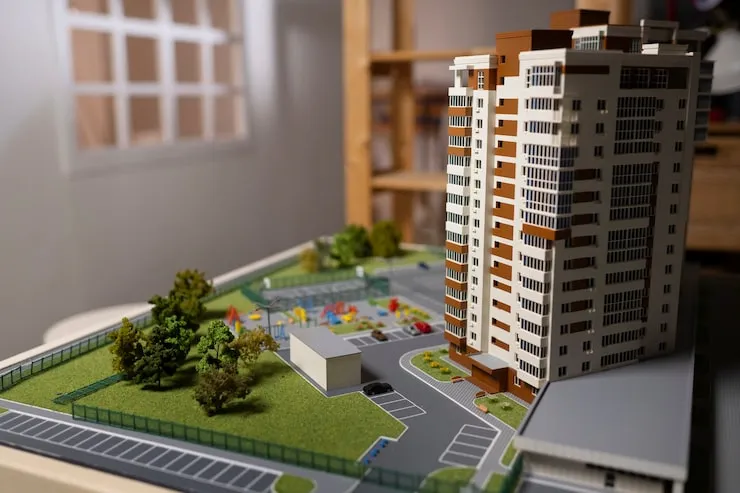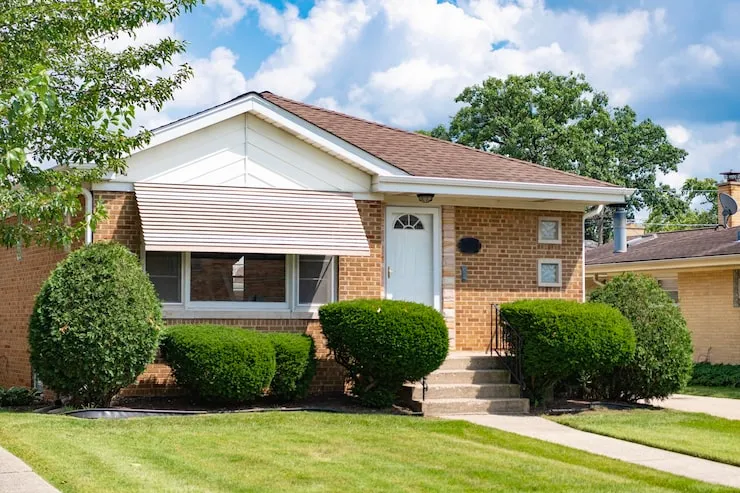
Urban vs Suburban Housing: Which Lifestyle Suits You Best?
Choosing between urban vs suburban housing is one of the greatest way of life choices for homebuyers and leaseholders. Both living situations come with special focal points and downsides, formed by individual inclinations, family needs, budgetary objectives, and long-term plans.
In this universal comparison find out the main differences between city and country accommodation collection things like cost of living, travel time, comfort, security, social life and investment opportunity. Regardless of whether you are a young skilled, a growing family, or a retired person, getting to know these distinctions can be of great help to you make an informed decision.
What Is Urban Housing?

Urban lodging alludes to private properties found in city centers or thickly populated metropolitan zones. These zones regularly include:
- High-rise apartments
- Condominiums
- Lofts
- Townhouses
Cities like Mumbai, Delhi, Unused York, or London are prime cases where urban lodging rules the skyline.
Read More: Best Cities for Real Estate Investment in 2025: Detailed Insights
Features of Urban Housing:
- Compact living spaces
- Proximity to trade districts
- Access to open transportation
- Cultural, eating, and excitement options
- Faster way of life with higher walkability
What Is Suburban Housing?
Suburban lodging alludes to private zones on the edges of major cities. These neighborhoods offer:
- Detached or semi-detached homes
- Gated communities
- More open gardens or backyards
- Lower populace density
- Suburbs are regularly seen in cities like Pune (close Mumbai), Gurgaon (close Delhi), or Unused Shirt (close NYC).
Features of Suburban Housing:
- Larger homes with more land
- Family-friendly neighborhoods
- More protection and green spaces
- Dependence on private vehicles
- Slower, calmer pace of life
Cost Comparison: Urban vs Suburban Housing

Urban Areas:
- Higher taken a toll per square foot
- Premium estimating for comfort and proximity
- Elevated property charges and rent
- Smaller living regions at higher prices
Suburban Areas:
- Lower property costs overall
- Larger homes for the same or less cost
- Reduced utility and support expenses
- More favorable charges and protections premiums
Key Understanding: Rural lodging offers way better esteem in terms of space and reasonableness, whereas urban lodging requests a premium for area and access.
Commute & Transportation
Urban Commute:
- Easier get to to open transportation like metros, buses, and trains
- Shorter commutes for city workers
- Walkable remove to amenities
Suburban Commute:
- Longer travel time to trade hubs
- Heavy dependence on cars
- More fuel utilization and activity stress
Key Understanding: If lessening commute time and car reliance is a need, urban living is more suitable.
Lifestyle & Amenities

Urban Lifestyle:
- 24/7 get to to excitement, nightlife, shopping
- Fast-paced, assorted, and dynamic environment
- More work openings inside reach
Suburban Lifestyle:
- Quiet neighborhoods with community parks
- Safer for children and elderly
- Limited but family-oriented civilities like nearby markets and schools
Key Understanding: Urban regions are perfect for singles and youthful experts, whereas rural areas cater to families and retirees looking for tranquility.
Safety & Environment
Urban Areas:
- Higher wrongdoing rates in numerous metro cities
- More contamination and noise
- Less individual space
Suburban Areas:
- Lower wrongdoing statistics
- Cleaner discuss, less activity congestion
- More get to to nature and open spaces
Key Knowledge: Rural areas by and large offer a more beneficial and more secure living environment, particularly for developing families and senior citizens.
Read Also: Commercial Real Estate in NYC
Investment Potential
Urban Housing:
- High appreciation rates in top-tier cities
- More liquidity and rental demand
- Suitable for short-term returns
Suburban Housing:
- Long-term appreciation as cities expand
- Rising request due to farther work trends
- Attractive for buy-to-hold investors
Key Understanding: Urban lodging gives speedier returns, but rural genuine domain is getting to be a solid long-term speculation, particularly post-pandemic.
Education & Healthcare
Urban Areas:
- Access to premium schools, colleges, and hospitals
- Specialized therapeutic administrations inside reach
- More competitive scholastic environment
Suburban Areas:
- Fewer high-ranking institutions
- Smaller schools with person attention
- Limited specialized healthcare but superior wellness
Key Understanding: For families centering on first class instruction and progressed healthcare, urban centers may still hold an edge.
Social Life & Community
Urban Social Life:
- Social differing qualities and organizing opportunities
- Cultural occasions and proficient connections
- High namelessness, moo neighborhood bonding
Suburban Social Life:
- Stronger community bonding
- Social clubs, family picnics, and festivals
- Limited differing qualities but tall interaction
Key Knowledge: Urban zones are way better for organizing, whereas rural areas offer a sense of community and stability.
Pros and Cons at a Glance
| Factor | Urban Housing | Suburban Housing |
|---|---|---|
| Cost | High per sq. ft., expensive | Lower per sq. ft., better space |
| Commute | Shorter, public transport friendly | Longer, car-dependent |
| Lifestyle | Fast-paced, vibrant, diverse | Quiet, family-friendly |
| Environment | Noisy, crowded, more pollution | Cleaner, greener, peaceful |
| Safety | Higher crime risk | Generally safer |
| Investment | Higher short-term returns | Growing long-term potential |
| Education/Healthcare | More access to premium institutions | Good but limited options |
| Social Life | Diverse but disconnected | Strong community bonds |
How to Choose: Urban vs Suburban Housing?
The right choice depends on individual needs. Inquire yourself:
- Do you prioritize space or convenience?
- Are schools and parks more imperative than clubs and cafés?
- Is a quiet life better than a busy one?
- What’s your budget and future development plan?
Final Verdict
Housing bubbles in urban and rural areas are influenced by lifestyle, professional goals, and family requirements. Urban ranges guarantee comfort and openings but come with higher costs and clog. Rural zones offer peace, reasonableness, and space but may give up comfort and connectivity.
It’s not almost which is superior universally—but which is superior for you.
FAQs on Urban vs Rural Housing
Q1. Which is more costly: Urban or Rural housing?
Urban lodging is ordinarily more costly per square foot and comes with higher living costs.
Q2. Is rural living more secure than urban living?
Generally, rural ranges report lower wrongdoing rates and offer a more secure environment, particularly for families.
Q3. Can urban homes be a great investment?
Yes, urban properties have tall rental request and faster appreciation in well-developed areas.
Q4. Is rural living reasonable for singles or professionals?
While generally family-oriented, numerous modern rural advancements presently cater to experts working remotely.
Q5. How does commute time differ?
Urban lodging abbreviates commutes due to vicinity, whereas rural living may require longer travel times.


